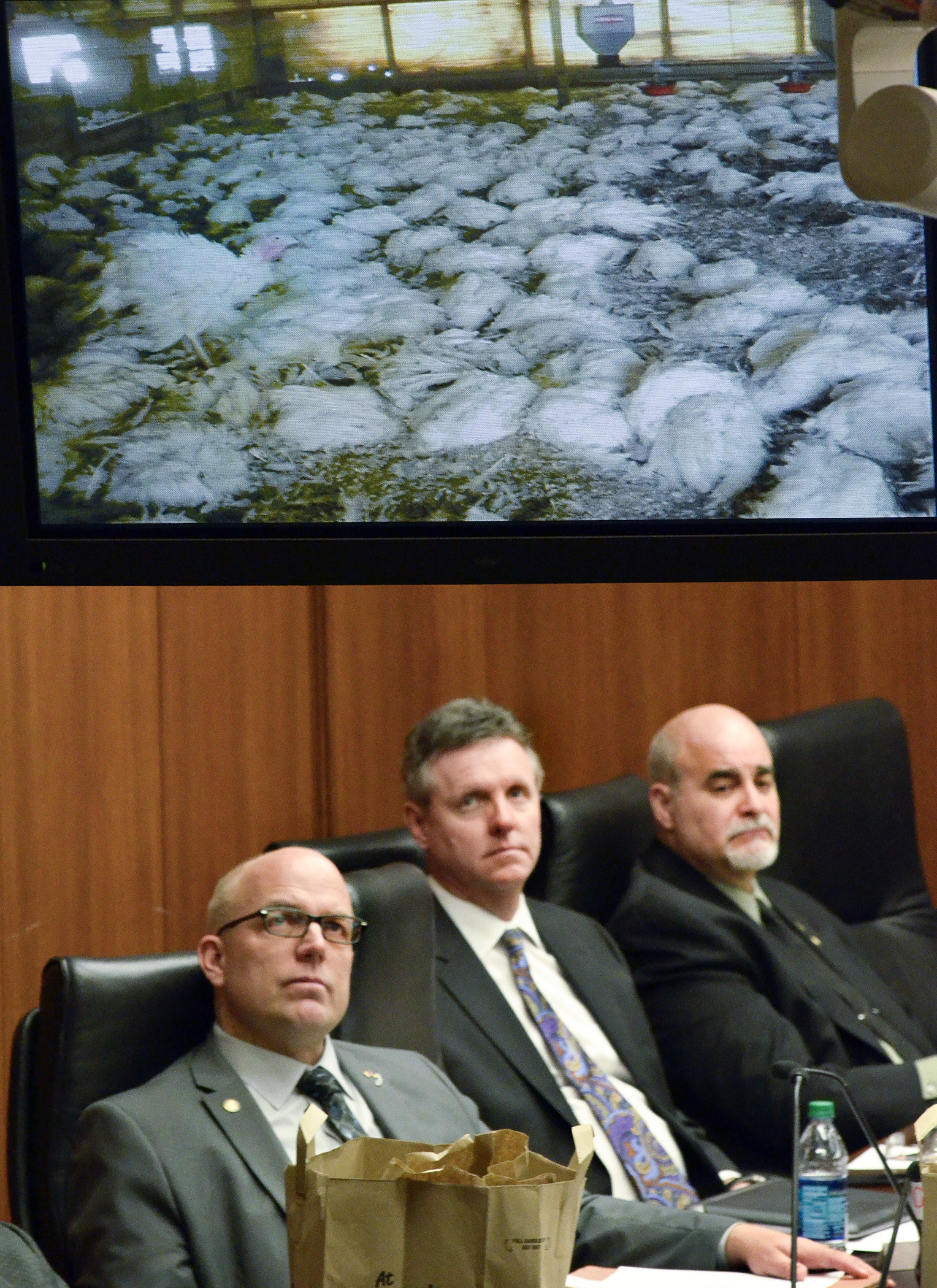Avian flu may plague MN turkey growers for years, committee hears

Officials aren’t yet certain how the virus that threatens Minnesota’s turkey growers is spreading, but those searching for answers don’t believe the problem is going away anytime soon.
After a morning hearing on the issue, the House declared an urgency, during the afternoon session to take up HF2225 that would help fund emergency responses. Sponsored by Rep. David Bly (DFL-Northfield), the bill passed 129-0 and now moves to the Senate where Sen. Kevin Dahle (DFL-Northfield) is the sponsor.
The bill would make two one-time appropriations in Fiscal Year 2015 from the General Fund: $514,000 to the commissioner of agriculture for the costs of avian influenza emergency response activities not covered by federal funding; and $379,000 to the Board of Animal Health for the costs of avian influenza emergency response activities not covered by federal funding.
About the crisis
Dr. Carol Cardona, an expert on avian health at the University of Minnesota, told a joint meeting of the House agriculture committees Thursday the state may be dealing with this outbreak for the next three to five years. While warmer temperatures will certainly help slow the spread of the virus this summer – it can’t survive above 80 degrees – they won’t eradicate it completely, according to Cardona. And until experts know how the flu is being spread, even slowing it remains a challenge.
Dr. Bill Hartmann, the Minnesota Board of Health’s state veterinarian, said officials are testing ducks, geese and other wild birds to determine if they may be carrying the virus – which has never before been seen in the state – but have not yet found that connection.
“The good news is that nobody has gotten sick yet,” Hartmann said.
The Department of Health is currently monitoring dozens of workers who have come in contact with the infected turkeys, but none have shown any signs of the illness. They must be watched for 10 days after their last potential contact with the virus.
Steve Olson, executive director of the Minnesota Turkey Growers Association, said about 2,500 flocks of turkeys are raised in the state each year and, to date, 22 have been infected.
Rep. Tim Miller (R-Prinsburg) said that although the current loss of flocks is “devastating,” fears about the safety of Minnesota turkeys, and the damage that could cause in the marketplace, was equally concerning.
Department of Agriculture Commissioner Dave Frederickson said his agency is working to assure people an infected turkey would never earn the food chain.
Olson echoed that sentiment.
This is not a food safety issue, Minnesota turkey is safe to eat,” Olson said.
Related Articles
Search Session Daily
Advanced Search OptionsPriority Dailies
Stable budget outlook projects $3.7 billion surplus now, no deficit in next biennium
By Lisa Kaczke The projected surplus for Fiscal Years 2026-27 is now higher than it was in the November estimate, and no deficit is projected for the next biennium.
“Minnesota’s budge...
The projected surplus for Fiscal Years 2026-27 is now higher than it was in the November estimate, and no deficit is projected for the next biennium.
“Minnesota’s budge...
Legislative leaders set 2026 committee deadlines
By Lisa Kaczke Legislative leaders on Tuesday officially set the timeline for getting bills through the committee process during the upcoming 2026 session.
Here are the three deadlines for...
Legislative leaders on Tuesday officially set the timeline for getting bills through the committee process during the upcoming 2026 session.
Here are the three deadlines for...